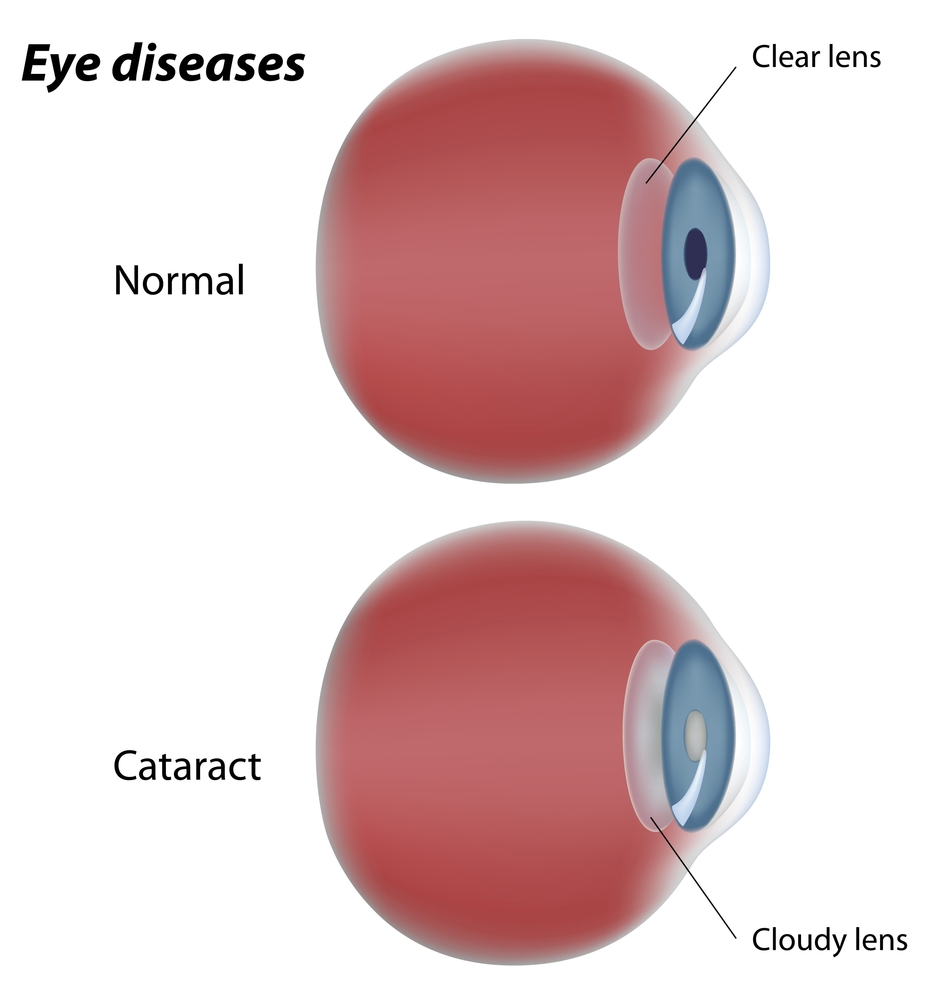Home » Blog » Banish Cataracts to Your Rearview Mirror After Cataract Surgery
Banish Cataracts to Your Rearview Mirror After Cataract Surgery
Posted by: Georgia Eye Partners in Cataract

Cataracts can be debilitating. They usually take years to develop. Because of this, you may not notice symptoms if you have cataracts, at least initially.
However, once symptoms develop, they may become more severe, leading to significant visual loss. Luckily, the good news is that you can restore any vision lost due to cataracts by having cataract surgery.
However, you shouldn’t wait until you can no longer see to have cataract surgery. Cataract surgeons recommend having cataract surgery as soon as your cataracts start affecting your quality of life.
At that point, cataract surgery can give you your quality of life and autonomy by restoring your ability to see clearly. You can even achieve better vision than before cataracts if you choose premium IOLs when you have the procedure!
Keep reading to learn more about how to banish cataracts to your rearview mirror after cataract surgery and what the procedure can achieve.
What are Cataracts?

Cataracts are proteins that form on the eye’s natural lens, clouding the lens. They usually develop very slowly over several years or even decades.
They may start developing as early as your forties or fifties. Over time, cataracts make the lens cloudier and cloudier. As the lens becomes cloudier, your vision will also become more impaired, making it more challenging to see through the natural lens.
The main symptoms of cataracts are blurry vision, poor night vision, light sensitivity, intense glare, halos around lights, and decreased ability to see color contrast. These symptoms appear slowly over time, so they can be hard to notice at first. But they can eventually make it very hard to see at all.
Because cataracts make it harder to see in low light, patients with advanced cataracts have difficulty seeing at night, especially while driving. The intense glare from headlights and street lamps makes it harder to see on the road.
Not being able to drive after dark is just one of the ways cataracts can significantly impact your life and make it harder to complete daily activities. If you have advanced cataracts, you may be isolated because it’s much harder to go out and do things independently.
The last thing you want to do is wait to have cataract surgery until you’re completely isolated. As soon as your cataracts start affecting your quality of life, it’s time to consider cataract surgery.
Are you struggling to complete daily tasks like laundry, cooking dinner, or cleaning your house because of impaired vision? These are some signs that cataract surgery could be the way to go.
What is Cataract Surgery?
Cataract surgery is a procedure that can help you see clearly and restore your clear vision. It’s a simple, effective, and very low-risk procedure.
It’s the most commonly performed medical procedure in the country! Cataract surgery is an outpatient procedure, meaning you go home once it’s over.
During the procedure, your eye’s natural lens is entirely removed, removing the cataract formed inside it. Then, the natural lens is replaced with an intraocular lens or IOL.
This IOL can help you see just as well as a clear natural lens. A premium IOL can even provide you with better vision than you had before developing cataracts!
Easy Procedure, Easy Recovery
Cataract surgery is minimally invasive and requires no general anesthesia. You’ll remain awake for the procedure. You will receive numbing eye drops that ensure you don’t feel pain during cataract surgery.
After the eye drops have the opportunity to spread over the surface of your eye, your cataract surgeon will begin by creating tiny incisions in your eye to gain access to the lens capsule. Then, they will gently break apart pieces of the lens and remove them with a small ultrasonic instrument, which is a process called phacoemulsification.
After removing the lens, your cataract surgeon will fold up and insert your IOL into the lens capsule. The IOL is then carefully unfurled, where it’s positioned as necessary.

No stitches or sutures are necessary since the incisions created are quite small and will heal on their own. Healing after cataract surgery is fast, with minimal discomfort that lasts only a day or two.
You’ll need to take minor precautions to help your eye heal, like taking prescribed eye drops and avoiding strenuous activity. Remember to attend follow-up appointments with your eye doctor at Georgia Eye Partners to ensure your eye is recovering and healing.
However, as you continue improving, you’ll notice that your vision is crisper and clearer than when you had cataracts.
Results that Speak for Themselves
Many patients who have cataract surgery regret not having the procedure sooner. It can be surprising just how much your cataracts have impacted your vision, and seeing the world without them is, quite literally, eye-opening!
Your life without cataracts will be so much better. You’ll be able to see at night again and go out again. You’ll also regain your independence so you can do things for yourself.
If you choose a premium IOL for cataract surgery, you can even find yourself able to do more than ever before!
Give Yourself Better Vision with a Premium IOL
Because cataract surgery is a medically necessary procedure, insurance usually covers it. Undergoing the procedure helps reverse and prevent further vision loss.
However, to have it covered by insurance, the procedure only includes the standard IOL option, a monofocal IOL. Monofocal IOLs help you see well at once distance, which is either up close or far away.
However, with a monofocal lens, you’ll still need glasses to see at the opposite, uncorrected distance. Not as commonly, some people choose an option called monovision.
With monovision, you’ll have one lens put in your eye for seeing up close and another lens put in your other eye for seeing far away. The result is good enough vision between the two distances.
But monovision only sometimes works for some people. Even when it does work, it doesn’t provide the best vision available, so you may still need glasses.
However, premium IOLs can help you see better at a broader range of distances. They can also reduce or even eliminate the need for any visual aids. Premium IOLs have an out-of-pocket cost, but the added expense is often well worth the incredible visual results.
Premium IOL Options

We offer several premium IOL options at Georgia Eye Partners, including:
Toric Lens
Toric lenses can correct astigmatism. This IOL is an excellent choice for patients who want to correct mild astigmatism during cataract surgery.
Multifocal Lens
A multifocal lens has alternating sections switching between close and distant focal points. Multifocal IOLs train your eyes to look through the part of the lens that best helps you see at the distance you’re viewing from.
This capability lets you see well without switching between visual aids like reading or prescription glasses.
Light Adjustable Lens
The Light Adjustable Lens (LAL) is a revolutionary IOL that gives you completely customized vision. You have the Light Adjustable Lens implanted during cataract surgery like you would with any other IOL.
But once you’ve healed from cataract surgery, you’ll start having the Light Adjustable Lens adjusted. It’s adjusted using a proprietary light delivery device.
The material of the Light Adjustable lens is UV reactive, so the device changes its shape to tailor the lens to your exact specifications. The lens also has an extended depth of focus, so it helps you see at a range of distances rather than just one.
The only way to achieve the best possible results when you have cataract surgery is with a premium IOL. A premium IOL is the way to go if you want to banish your cataracts to the rearview mirror and see clearly.
Are you ready to change your life? Now, take the first step towards better vision by requesting a cataract consultation at Georgia Eye Partners in Atlanta, GA! What do you have to lose, except blurry vision from your cataracts?